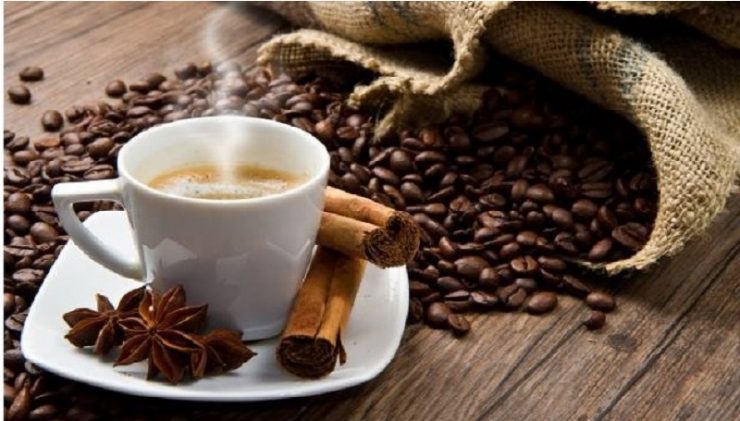THERE IS a fairly long process through which coffee travels from farms to coffee lovers’ cups. And each stage of the process can affect the aroma and taste of the coffee, particularly Arabica and Robusta grown in Sembalun Sub-district or on the slopes of Mount Rinjani in East Lombok District.
Given the many coffee processing methods and in line with the current popularity of coffee, the tourist place Surga Rinjani Park held a free barista course, which was attended by dozens of participants from across Lombok Island.
The course was held for two days recently, and was conducted by certified barista mentors MS Wathan (Sangka Bira), Rian (Lombok Roastery), Hazrur Azmi (Coffee Shop), Heri (Sembalun Coffee), Taufik (Orange Coffee), and Bayu Van Warso (Malang Coffee).
The event aimed to provide a platform for participants to get to know coffee better. Starting from the history of coffee to the post-harvest process, the participants were provided information about growing coffee and coffee baristas in Sembalun, as well as in West Nusa Tenggara (NTB) Province in general.
The participants seemed very enthusiastic and eager to take part in the series of activities. One of the participants, Nazarudin from Sembalun Timba Gading village, expressed his gratitude for the opportunity to take the course.
During the course, the participants paid close attention to information regarding the history of the origin of coffee beans and the effect of processing on the taste of coffee.
The taste of coffee depends on the processing and brewing method. Well-brewed coffee has different flavors, such as strawberry, orange, and apple. The coffee doesn’t just taste bitter, instead, it has several accompanying flavors.
The participants were also invited to compete in brewing and cupping during the course. Manual brewing is the technique of making coffee manually without using an espresso machine, but a special filter paper. Meanwhile, cupping is the process of finding out what the aroma or taste of coffee is like.
The participants expressed the hope that similar activities would be held often by the government and coffee observers, especially baristas, in NTB, so that coffee farmers and young people who are interested in coffee businesses can innovate in processing coffee themselves.
NTB coffee potential
NTB province comprises several islands. The two large islands in the province are Lombok Island and Sumbawa Island. The region has two well-known mountains: Mount Rinjani in East Lombok (Lombok Island) and Mount Tambora in Dompu (Sumbawa Island).
Given its conducive natural conditions, Lombok Island produces a significant volume of agricultural products, especially coffee, which is quite good compared to Sumbawa Island, which is relatively dry.
According to data from the NTB Agriculture and Plantation Service, almost every district/city in the region produces coffee, both Robusta and Arabica. The coffee-growing districts/cities in the province are Mataram city, North Lombok, West Lombok, Central Lombok, East Lombok, West Sumbawa, Sumbawa, Dompu, Bima, and Bima city.
Temporary data shows that the Robusta coffee harvest area in NTB in 2022 reached 11,396 hectares with production recorded at 5,500 tons. Meanwhile, the area under Arabica coffee was smaller, measuring 1,076 hectares with production pegged at 978 tons. Robusta coffee production in NTB as well as most coffee-producing centers in Indonesia is higher compared to Arabica coffee because the two types of coffee have different characteristics.
Arabica and Robusta have differences in cultivation and taste. Robusta coffee (Coffea canephora) is a variety that is easier to grow and is resistant to disease and poor environmental conditions. Robusta coffee plants grow in low-altitude areas, around 200–800 meters above sea level.
Meanwhile, Arabica coffee (Coffea arabica) is a coffee variety that is more difficult to grow and more susceptible to disease. Arabica coffee plants grow in areas at higher altitudes of around 600 to 2 thousand meters above sea level.
The caffeine content of Robusta coffee is higher, around 2.7–4% of the weight of the coffee beans. This gives Robusta a stronger and more bitter taste. Meanwhile, Arabica coffee has a lower caffeine content of around 1–1.5% of the weight of the coffee beans, therefore, it has a softer and more complex taste.
The NTB provincial government has continued to strive to expand coffee planting areas to increase production and farmer welfare. This year, the Ministry of Agriculture allocated a budget for a new coffee planting area of 300 hectares on Sumbawa Island.
The effort is quite reasonable because the agricultural sector is still the biggest supporter of NTB’s economy. More than a fifth of NTB’s gross regional domestic product (GRDP) comes from the agricultural sector.
Based on data from Statistics Indonesia (BPS), in 2021, for example, the value of NTB’s economy at current prices (ADHB) reached IDR140.15 trillion, of which IDR31.96 trillion (22.8%) was contributed by the agricultural sector. The contribution from the agricultural sector was the largest compared to other sectors.
The sector with the next largest GRDP value was mining with a value of IDR24.28 trillion (17.33%), followed by the wholesale and retail trade sector at IDR19.6 trillion (13.98%), and the construction sector with a GRDP of IDR13.67 trillion.
NTB province, which is known for producing various agricultural products, including coffee, is continuing to strive to develop its potential by engaging various parties, especially young people, to become millennial farmers. It is hoped that young farmers will be able to develop the agricultural sector in the region through their innovations. [antaranews/photo special]
















